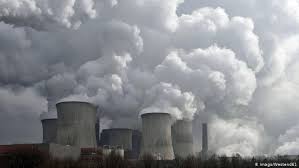National Clean Air Programme to reduce air pollution

The National Green Tribunal has directed the Environment Ministry to modify the National Clean Air Programme (NCAP) to reduce air pollution which proposes 20-30 per cent reduction of air pollution by 2024.
Daily Current Affairs Quiz 2019
A bench headed by NGT Chairperson Justice Adarsh Kumar Goel noted that as per the Central Pollution Control Board (CPCB) report, there is a proposal for national-level target of 20-30 per cent reduction of PM2.5 and PM10 concentration by 2024 under the National Clean Air Programme keeping 2017 as the base year.
“The timelines to reduce the air pollution by 20-30 per cent by 2024 needs to be reduced and the target of reduction needs to be increased, having regard to adverse effect on public health and in view of constitutional mandate of fundamental right to breathe clean air. Violation of such fundamental right cannot be allowed to be continued for such a longer time. The NCAP needs to be modified accordingly and a modified plan notified and implemented by the State instrumentalities in letter and spirit,” the bench said.
The tribunal also directed the CPCB and state pollution control boards to ensure assessment and installation of the requisite number of real time online continuous Ambient Air Quality Monitoring systems within six months.
It also directed an expert team of CPCB to design a model for source apportionment and carrying capacity assessment within two months which may be replicated for all the non-attainment cities.
“In the light of such study, further action may need to be considered by MoEF within three months thereafter in terms of regulating the number of vehicles, action in terms of shift to e-vehicles and CNG vehicles, intensifying public transport system, mechanical cleaning of roads, enhancement of public, parking facilities, improvement in fuel quality and traffic management,” the bench said in a recent order.
The green panel also directed the concerned Town and Country Planning departments of all the states and union territories to ensure review of master plans specially for the Non-Attainment Cities, where air pollution is beyond prescribed limits, and asked them to evolve enforcement mechanism for closing or shifting industrial units from residential areas.
“CPCB must forthwith come out with a compensation regime within two months for air as well as noise pollution to the extent such norms have not yet been laid down. Noise Limiters need to be installed on potential noise polluting devices, including retrofitting the existing devices,” the bench said.
It also asked CPCB to evaluate existing air quality monitoring mechanism of all states and UTs and furnish a report to this tribunal.
“CPCB and States may have robust Emergency Response System and preparedness by way of mock drills and measures to be taken in the scenario when air pollution levels become severe plus and severe,” it said.
The NGT said that citizens’ right to clean air is guaranteed under the Constitution and it cannot be postponed as per CPCB’s convenience.
Concerned over the threat posed to limited natural resources due to their overuse, the tribunal had earlier directed for assessment of carrying capacity of 102 cities, including Delhi, where air quality does not meet the National Ambient Air Quality Standards.
The concept of “carrying capacity” addresses the question as to how many people can be permitted into any area without the risk of degrading the environment there.